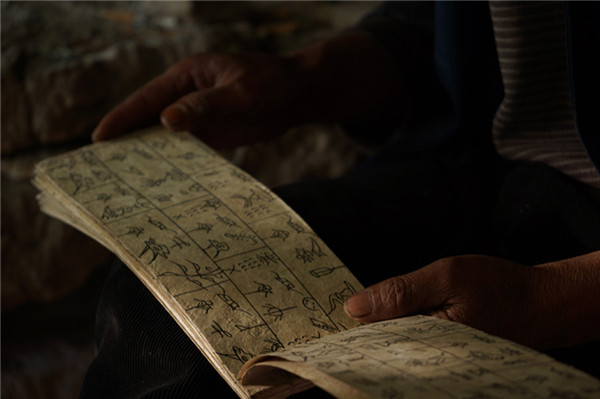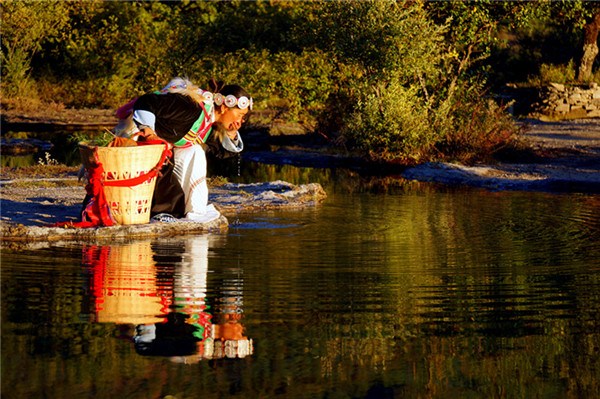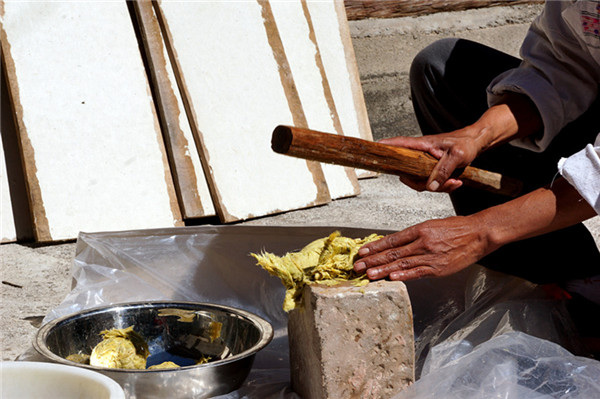
An aged villager reads Dongba scriptures written on traditional Dongba paper. (Photo by Xu Jing/chinadaily.com.cn)
To explore the traditional techniques of Dongba hand-made paper, representatives of Great Seed, an intangible cultural heritage online community, lived with a Dongba family for two days in Baidi village in Shangri-la, Southwest China's Yunnan province. They recorded the whole papermaking process as well as the family's daily life.
Dongba, literally meaning "wise man", plays a major role in Nakhi people's lives and culture. They are intellectuals with wide knowledge, covering fields like music, dance, classics, writing, history, painting, medicine and fortune-telling. He Zhiben, nearly 90 years old, is the only Dongba of the Badi village. He lives with the family of his youngest son.

Li Xiuhua learned Dongba papermaking from He after marrying He's youngest son at 22, and became the only female inheritor of the national-level intangible cultural heritage. Dongba paper, which is used to record Dongba scripture and draw pictures for the Nakhi people, is a rare, ethnic handmade paper. The material for making the paper it is naturally resistant to insects, so Dongba Paper is bug-proof and can be preserved for a very long time.
He and Li couple make about 7,000 pieces of paper each year in their spare time, aside from work on the farm and in the house that keeps them busy, and part-time tour guide work.
"We earn less than 20,000 yuan($3,146)from papermaking each year, almost enough for the tuition and fees for our two kids studying in the town, but far from the whole household expenses," Li said.
Although papermaking doesn't bring in much money, He's family holds onto the tradition and keeps making the most original Dongba paper totally by hand. They take delight in teaching other villagers and visitors everything about Dongba culture, from papermaking to Dongba characters.

Li and He have long dreamed of setting up a private Dongba culture museum but they never have enough money to do so.
"I'll never give up my dream of spreading Dongba culture. Many people try to persuade me to use the modern way to make paper. I know it can cut costs. However, as a member of a Dongba family, I will never abandon our tradition for money. I will try my best to set up our museum. I know it's hard, but I'm confident in the future," Li said.
The happiest recent event for He and Li is that they will start the first training class on Dongba culture for the Nakhi people in or near their village soon.


















































